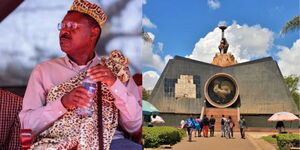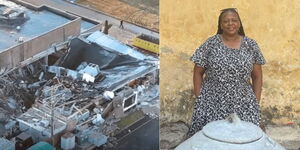An Indian businessman and real estate developer - Chanan Singh, allegedly secured a contract to build Ofafa and Mbotela estates by offering a bottle of brandy to a corrupt city official.
A tale of how corruption formed the core of Nairobi's foundations by The Standard revealed how the Indian was able to earn favour at City Hall using alcohol.
Mr Singh allegedly made his way to the city engineer's - Mr Stone's, residence with a roll of tarpaulin and bottle of brandy in a bid to seal the deal.
"At stake was the largest housing development ever planned in British colonial Africa, which as David Anderson states in his book, Histories of the Hanged, was an investment of about Ksh1.3 billion," The Standard revealed.
Nairobi's Mayor at the time- Israel Somen, was convinced by his city engineer's raving review of Singh and quickly approved the entire project.
The level of corruption within Nairobi involving countless backroom deals during this period is claimed to have been so rampant that the British colonial government sent a London based barrister - Sir Alan Rose to look into the matter.
Sir Rose formed a Commission of Inquiry whose hearings began on December 19, 1955, with an aim of unearthing the various culprits of the corruption syndicate.
The commission listened to 90 witnesses in 66 public sessions which lasted up to March 27, 1956.
Reports following the inquiry discovered that Chanan Singh and his brother Gulchand Singh had been supplying the city engineer with liquor in exchange for favours during the awarding of tenders.
Mr Singh is also reported to have provided him with a tarpaulin to cover his sick cow as well as provided him with sand and ballast, all in an effort to secure future deals.
The Ofafa and Mbotela houses still stand, but time has taken its toll with the current county government planning to redevelop over 2,000 acres in estates such as Kaloleni, Bahati, Ziwani, Mbotela, Jericho and Shauri Moyo where about 80,000 units will be constructed at a cost of more than Ksh40 billion.












